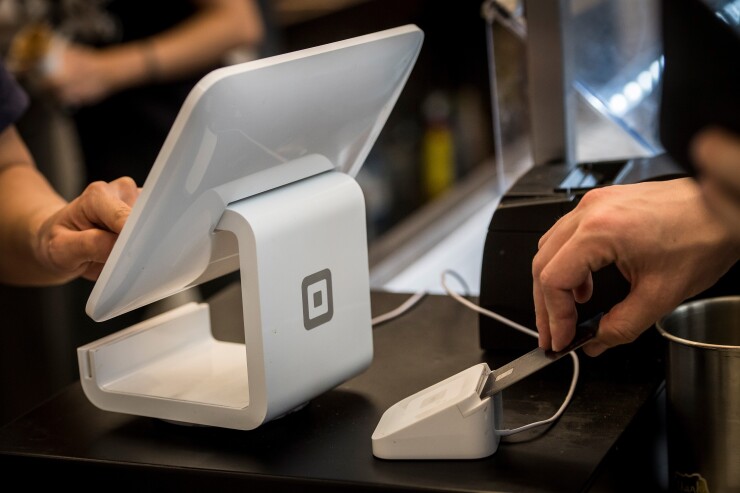
Outages such as the one Square suffered late this week are rare, but can still cause major disruptions to merchants — particularly smaller businesses that may not have a multitude of non-cash payment options.
Square and Cash App suffered system outages starting around midday Thursday. The outages, which were still being repaired Friday morning, led to hundreds of queries on social media about what would happen to
Square's outage follows a similar incident this year on the bank-supported
"From personal experience, my daughter was working in a supermarket over the summer and they had an outage lasting more than an hour," said Ron van Wezel, a strategic advisor for Datos Insights in Amsterdam, where there's almost no cash usage. "Imagine the chaos of clients leaving their shopping bags and walking away [and] angry people shouting at the cashiers."
The tracking site
Block, which operates Cash App, other consumer services and Square's business-facing products, referred questions on the companies' updates to
As of 11:30 a.m. Eastern time on Friday, the latest update on Square read: "Our engineers have worked on a solution for this disruption and they plan to make it available in an upcoming Square Point of Sale update (version 6.25.1). We will continue monitoring and provide updates as they occur. Thank you for your continued patience." The latest Cash App update said the P2P rail is "mostly" back online. Square on Friday afternoon announced its payments glitch has been resolved and Cash App is "up and running."
Earlier status reports from Block said the disruption affected Square Stand and readers connected via USB on point of sale version 6.24; merchants reported seeing a message saying the reader has disconnected. The instructions recommended that merchants connect to Bluetooth as a backup. Other messages advised against updating to the 6.24 version of the POS until more information is available.
Square Stand is the company's point of sale terminal, which competes with Fiserv's Clover and other similar devices. Cash App is a P2P transfer service that also supports other Block services such as its cryptocurrency trading business.
An outage such as Square's will impact smaller businesses more than large retail chains, according to David Mattei, strategic advisor for the fraud and AML practice at Datos Insights.
"Hopefully the merchant has multiple POS devices in the event one is not working," Mattei said. "However, for very small businesses, they likely only have a single POS device, so this could be a very serious issue for them."
An outage typically means that the POS device lacks the connectivity necessary to verify a card payment. In this case, allowing a sale to proceed and processing the payment at a later time. Square calls this its
"However, there are problems with this," Mattei said. "If there are any problems with the transaction, the merchant ends up owning the liability."
These issues can include fraudulent transactions, invalid cards or insufficient funds.
"Larger merchants protect themselves in these situations by having multiple payment processing relationships," Mattei said.
Another potential backup option is a cloud-based point of sale, van Wezel said, noting that providers can operate a distributed architecture that will switch transactions automatically to a second server if there is a problem. Merchants can also implement multiple cloud systems for further redundancy.
"However, contingency remains a major concern for merchants. One of our clients once said that their RFP to vendors stresses three top priorities: resilience, resilience and resilience," van Wezel said.






